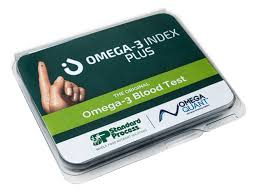The Standard Process Omega-3 Test is a diagnostic test designed to assess an individual’s omega-3 fatty acid levels. Omega-3 fatty acids are essential fats that play a critical role in various bodily functions, including heart health, brain function, and reducing inflammation. The test is typically used to determine whether someone has sufficient omega-3 levels or if they may benefit from increasing their intake of these essential fats through diet or supplementation.

Key Details about the Standard Process Omega-3 Test:
- Purpose: The main goal of the test is to evaluate the amount of omega-3 fatty acids present in an individual’s blood, particularly the levels of EPA (eicosapentaenoic acid) and DHA (docosahexaenoic acid), which are the two most important types of omega-3 fatty acids. These levels are often used as an indicator of overall omega-3 intake and can help healthcare providers make recommendations for dietary changes or supplementation.
- How the Test Works: The test is typically done by collecting a blood sample (usually via a simple finger prick). The blood sample is then analyzed in a laboratory to measure the levels of omega-3s in the blood. The results can help determine whether a person has low, normal, or high omega-3 levels.
- Low Levels: May indicate a need for increased omega-3 intake through diet (such as eating more fatty fish) or supplements (like fish oil).
- Normal Levels: Suggest that the individual is getting a sufficient amount of omega-3s from their diet or supplements.
- High Levels: Could indicate excessive omega-3 intake, which may warrant a reduction in supplementation.
- Importance of Omega-3 Fatty Acids: Omega-3 fatty acids are important for:
- Heart Health: They help reduce triglycerides, lower blood pressure, and support overall cardiovascular health.
- Brain Function: DHA, in particular, is essential for brain health and cognitive function. It’s important for memory and focus.
- Inflammation: Omega-3s have anti-inflammatory properties, which can be helpful in conditions like arthritis, autoimmune diseases, and other inflammatory conditions.
- Eye Health: DHA is also a major structural component of the retina and is essential for eye health.
Low levels of omega-3s have been linked to an increased risk of various health issues, including heart disease, cognitive decline, and joint problems.
The Standard Process Omega-3 Test is a valuable tool for assessing the omega-3 fatty acid levels in your body and ensuring that you are getting the right amount of these essential fats to support overall health. It can help identify deficiencies, guide supplementation, and optimize diet to prevent various chronic health issues. If you are concerned about your omega-3 levels or want to make sure your intake is sufficient, this test provides a useful and simple way to get personalized insights into your nutrition.

